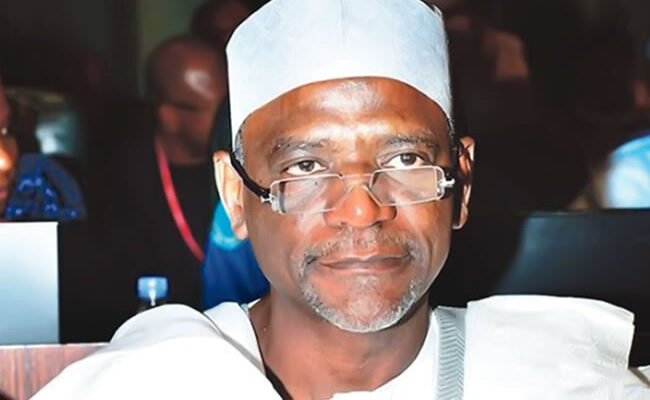AS the UNESCO report that states that Nigeria has over 20 million out-of-school children continues to generate controversy, CLEMENT IDOKO writes on what experts believe are the factors feeding the menace, and how it can be effectively tackled.
The United Nations Educational, Scientific and Cultural Organisation (UNESCO) report released on September 14, 2022 indicated that Nigeria had 20 million out-of-school children.
This effectively places Nigeria as the second country in the world with the highest number of school age children who are not in school – after India, with 52 million, followed by Pakistan with 19 million.

The UNESCO report says there are over 244 million children and youths between the ages of six and 18 worldwide who are still out of school, and Central and Southern Asia account for 85 million of these.
The top three countries with the most children and youths excluded from education, according to the report, are: India, Nigeria and Pakistan.
However, the UNESCO figure has been faulted by Nigerian experts, with the National Personnel Audit (NPA) of all basic education institutions conducted by the Universal Basic Education Commission (UBEC) putting the number of out-of-school children in Nigeria at 10.2 million.

Also, the Multiple Indicator Cluster Survey 2021 conducted by the National Bureau of Statistics (NBS) with the support of United Nations Children›s Fund (UNICEF) and other stakeholders ranked Kebbi as the state with highest number of out-of-school children in Nigeria (64.8 percent), followed by Zamfara (61.4 percent) and Bauchi (60.8 percent).

The disparity between the UNESCO figures and those touted by Nigerian authorities, notwithstanding, what is generally not contested is the fact that the country is still grappling with the burden of millions of school-age children who are not in school.
Experts have identified factors responsible for this menace and proffered solutions. These factors include socio-cultural norms, poverty, insecurity, as well as exclusion of children with disabilities in the policy drive.
According to the executive director of Education Rights Initiative (ERI), Dr Solomon Udah, extreme poverty, socio-cultural barriers and low investment in education across the tiers of government are at the root of the problem.
Some parents, he noted, are so poor that feeding their immediate family is a problem much less sending the children to school.
“They (government) will tell you that schools are free, but a parent has to provide uniforms, transport the child every day, and take care of feeding in school, buy books and a whole lot of others.
“This is why we have continued to advocate for more investment in education by particularly the state and the local government which are directly in charge of basic education.
“We are aware of the enormous support from the Federal Government through the Universal Basic Education Commission (UBEC), but the question is how much of that money is being used to address the challenges of basic education in Nigeria?
“Local government councils are the ones overseeing the LEA schools, but where do they get their money from? State governors collect the entire allocation under the guise of joint account and give what they want to the local government chairmen or administrators. This is one of the reasons why teachers are being owed salaries in some states for more than one year.”
Udah also cited the socio-cultural barriers where the girl-child in some cultures is not allowed to go to school, but remains with the mother to help in domestic chores, until she is married off, most times underage, either because of pregnancy or pressure from the parents themselves who need the money in terms of dowry.
“We need to change this orientation if we have to make progress as a nation,” he said.
Also, Dr Aminu Abdu Bichi, while speaking at the national conference on the out-of-school chilldren in Abuja. on the ‘Root Causes, Dimensions and Manifestations of the Out-of-School Children Phenomenon in Nigeria,’ said the economic, demand-side barriers that cause out-of-school phenomenon include poverty, children engaged in labour, residents rural-urban migration, and pursuit for material wealth by youths.
He also identified early marriage; poor perception of western education, lower status accorded the girl-child in the family, and peer pressure.
Bichi also identified factors such as early marriages, domestic violence, gender stereotyping, menstruation management, and lack of access to schooling.
“The direct and indirect costs of schooling are more likely to induce families at the lower end of the income distribution to substitute child education for child work, whether at home or in the labor market,” he added.
Recently, the Minister of Education, Malam Adamu Adamu, regretted the inability of the current administration to eradicate the out-of-school children scourge in its about eight-year tenure.
He openly declared while presenting his keynote speech at the 66th National Council on Education (NCE) meeting in Abuja that he had failed as a minister in respect of his desire to end the out-of-school children phenomenon in Nigeria.
Adamu, however, blamed the state governments for the continuous rise in the number of out-of-school children, blaming states for not doing much to complement what the Federal Government, through the UBEC, was doing to tackle the menace.
In an unpublished response to the claims by the UNESCO on the phenomenon of out-of-school children in Nigeria, obtained by Nigerian Tribune, the Federal Ministry of Education noted that UNESCO Institute of Statistics (UIS) had attempted to justify the methods used in arriving at the 20 million figure, insisting that the report is capable of misinforming the public, and underrating the significant efforts made by the government in addressing the challenge.
An average Nigerian believes that UBEC should be held responsible for the rising number of out-of-school children in Nigeria. UBEC was created in 2004 to provide intervention in the form of matching grants disbursed to states to build additional classrooms and other infrastructures needed to support effective teaching and learning. It also as part of its mandate allocates some percentage of its fund for training of teachers, supply of textbooks and other instructional materials.
According to a document obtained by the Nigerian Tribune from the Federal Ministry of Education, in the last seven years, the ministry through UBEC has spent more than N500 billion (N553,134,967.498.50) on infrastructure development at the basic and secondary levels.
The document further noted that the ministry has invested heavily in the construction, renovation and rehabilitation of classrooms, hostels, laboratories, security and other infrastructural facilities at the basic and secondary levels.
The challenge, however, is how effectively has this counterpart fund disbursed to the state governments through their States Universal Basic Education Boards been utilised?
Findings by Nigerian Tribune revealed that there had been cases where some state governments would pay the 50 percent counterpart fund for UBEC to release their fund, and immediately the money hit the dedicated account; it was withdrawn and diverted to other purposes.
This is one of the reasons some states have accumulated un-accessed fund with UBEC for many years, because the commission always insists that the states must show evidence of judicious application of the previous allocation before they could access another one.
Way Forward
A paper on addressing the challenges of out-of-school children phenomenon in Nigeria obtained from UBEC noted that the sustainability of interventions targeted at the problem depends not only on available resources at the country level but also on the political will and commitment of governments at all levels.
It also stresses the need for community accountability in mobilising positive responses towards addressing out-of-school phenomenon.
“Engaging stakeholders is crucial because it can help build ownership, help adjust the policy to ensure it reaches schools and learners, inform on stakeholders’ readiness, willingness and capacity to change their practice and build trust between stakeholders and policymakers,” it noted.
It added that there is an urgent need to refocus the strategic efforts and rethink the approaches in dealing with the out-of-school children phenomenon by developing new financing mechanisms to reach the most vulnerable children, including girls and children with disabilities.
READ ALSO FROM NIGERIAN TRIBUNE








